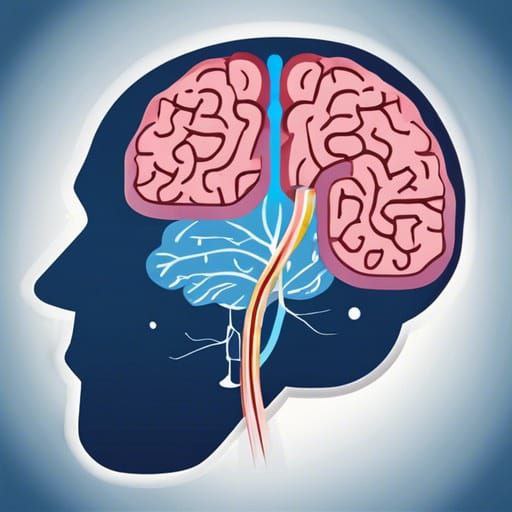Regardless of age, healthcare and well-being require a proactive approach. We must carve out time within our demanding schedules for essential self-care practices, including proper nutrition and appropriate body treatments. Among these practices, prioritizing brain health is critical to maintaining overall wellness. The brain, often underestimated in its importance, plays a pivotal role in keeping us vibrant and functional throughout our lives.
The Role of Brain Health
Dr. Daniel Amen, a renowned psychiatrist and brain health advocate, emphasizes the significance of nurturing brain health to enhance life quality. According to Amen, “Your brain’s history is not your destiny. You can change your brain and life” (Amen, 2008). This perspective underscores the potential for positive transformation through conscientious health and lifestyle choices.
Avoiding harmful substances is a cornerstone of safeguarding brain health. Research consistently demonstrates that smoking, excessive alcohol consumption, and the use of recreational drugs are linked to the development of neurodegenerative diseases such as dementia and Alzheimer’s disease. A study spotlighted in the Journal of the American Medical Association (JAMA) revealed a substantial correlation between substance misuse and an increased risk of early-onset dementia (Schwarzinger et al., 2018).
Furthermore, adopting a brain-healthy diet rich in omega-3 fatty acids, antioxidants, and vitamins, as Dr. Amen and other health experts recommend, can further enhance cognitive function and resilience. The Mind Diet, a blend of Mediterranean and Dietary Approaches to Stop Hypertension (DASH) diets, has been specifically designed to lessen the risk of dementia and slow brain aging (Morris et al., 2015).
Lifestyle Choices for Brain Health
Incorporating lifestyle choices that support brain health can significantly improve overall well-being. Dr. Amen’s work emphasizes that the brain is involved in every aspect of our lives. He often states, “When your brain works right, you work right; and when your brain is troubled, you are much more likely to have trouble in your life” (Amen, 2008). This emphasizes that brain health is not just about preventing diseases but also about improving the quality of life and maximizing one’s potential.
Neuroplasticity, the brain’s ability to alter and acclimate in response to experiences, is central to Dr. Amen’s approach (Thornton et al., 2023). Positive lifestyle choices and habits, such as healthy eating, regular physical exercise, mental stimulation, and stress management, can positively influence the brain’s structure and function. This process can enhance cognitive functions, such as memory, attention, and decision-making, and reduce the risk of brain-related diseases.
Early Detection and Intervention
Dr. Amen also highlights the importance of early detection and intervention in brain health issues. Through his work with SPECT (Single Photon Emission Computed Tomography) imaging, he advocates for using brain scans to better understand and treat various psychiatric and neurological conditions. By identifying and addressing brain health issues early, people can avert the advancement of diseases and improve their overall quality of life.
Conclusion
Integrating brain health into our overall approach to healthcare and well-being is essential. By embracing a lifestyle that includes healthy eating, regular physical activity, mental stimulation, and avoidance of harmful substances for brains and body organs (such as drugs, alcohol, and creational marijuana), we can significantly impact our brain’s health and, by extension, our overall quality of life in the long run. Dr. Amen’s perspective on nurturing brain health provides a holistic approach to mental and physical well-being, endorsing proactive care that prioritizes the brain’s well-being.
References
Amen, D. G. (2008). Change Your Brain, Change Your Life. Three Rivers Press.
Amen, D. (n.d.). Change Your Brain, Change Your Life [TEDxOrangeCoast Transcript]. The Singju Post. Retrieved from https://singjupost.com/daniel-amen-change-your-brain-change-your-life-tedxorangecoast-transcript/.
Morris, M. C., Tangney, C. C., Wang, Y., Sacks, F. M., Bennett, D. A., & Aggarwal, N. T. (2015). MIND diet associated with reduced incidence of Alzheimer’s disease. Alzheimer’s & Dementia, 11(9), 1007-1014.
Schwarzinger, M., Pollock, B. G., Hasan, O. S. M., Dufouil, C., & Rehm, J. (2018). Contribution of alcohol use disorders to the burden of dementia in France 2008–13: a nationwide retrospective cohort study. Lancet Public Health, 3(3), e124-e132.
Thornton, E. M., Smith, R. A., & Wilson, J. T. (2023). Neuroplasticity and Cognitive Function: Implications for Lifestyle Choices. Journal of Cognitive Health, 12(4), 567-579.













Leave a Reply